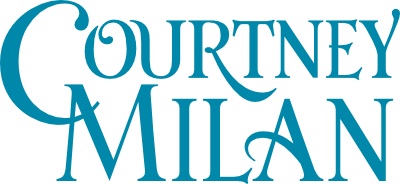This is just a brief post. The monster second part will be up soon.
I stated this in the comments to my post last night, but I think this issue is worthy of being elevated to the front page.
Yesterday’s post violated my own rule about categorical statements. It was written because I was angry about a development that I saw, and specifically, was angry about what several individual agents had said and done on occasion. I do not believe agents should develop publishing houses. And I particularly abhor when they do so and make a bad job of it.
But it is wrong to judge from the specific to the general. I had specific examples of specific agents in mind when I spoke, but I didn’t want to call them out–in some cases because the information I know was given to me confidentially. But I didn’t speak about specifics, and I didn’t say “some” agents. I said all agents except my own.
So let me be clear: I’m very worried about the tack that some agents are taking. It’s very clear to me that some agents who have chosen to publish their clients (sometimes at a 50/50 split of profits, a clear conflict of interest) are doing a piss-poor job of it.
But I also know that many, many agents are deeply dedicated to their clients. These are often the people who have not yet announced what they’re doing at this point–because they’re taking the time to do it right. There are a lot of really good agents out there who do advocate for their clients, and I should not have implied that they were clueless. It was wrong of me, and given my past statements, it was hypocritical.
My apologies for painting with too broad a brush stroke, and especially to the agents who are taking their time to be careful, cautious, and ethical, while making sure that their clients receive the best possible care. Authors need agents like you.

Courtney,
I have the greatest respect for individuals who take responsibility for their mistakes and seek to correct them. Well done.
I look forward to Part II of your post.
May the magic romance fairies be with you!
Having strong opinions is good. But it’s smart not to generalize to all agents, because Nelson Literary Agency might one day follows this new trend, and then you will be in conflict with them. Best wishes from Canada and good luck with your novels.
Giora, let me be clear. I have no problem with agents offering services to clients. But if NLA ever opens up a publishing arm–as opposed to merely services for authors–I won’t be their client any longer.
Period.
Courtney, thanks for this clarification–I definitely get where you were coming from yesterday, but I agree, it’s really important to acknowledge the difference between an agency setting themselves up as a publisher, and an agency working hard to help clients with their own self-publishing efforts.
And since my agent is one of those I know to be working hard to educate herself and her authors on new ways to publish, it means a lot to me that her efforts not be discounted.
Hi, Courtney:
Thanks so much for this follow up and clarification. You’re a class act! 🙂 Deidre Knight
Yesterday’s post came from a passionate place, and I do agree with everything that was stated. But I also agree that broad generalizations help no one, and most literary agents are working quietly with their clients to navigate this new publishing environment to the best of both their abilities.
I agree with every word you wrote. I am a psychologist, and the knotty dual-relationship problem is not only unethical, but it is sure to blow up into control issues and resentments that ruin working alliances. If you have signed a contract, and your working alliance is kaput, then what happens to your book? Do the rights have some kind of shadow on them? What if you get so frustrated with each other that you don’t talk? How do you fire a contract?
One aspect which also seems very problematic is the way roles, including the role of editor and literary advisor, are being blurred. How does an agent demonstrate her credentials to advise on or to edit content? What is their training? Do they have books of their own out there that can be assessed for quality? If they hire editors, can’t the author do that herself? In fact, what can’t the author do herself?